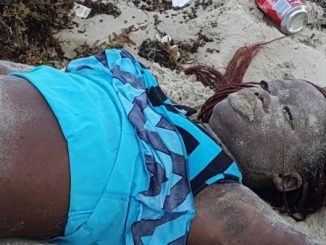
*Maada Bio and Emmerson Bockarie: The Tribalistic Brothers in Governance*
In Sierra Leone, music has long been a powerful tool for social and political commentary, giving voice to popular frustrations and sentiments that might otherwise go unspoken. Few artists have wielded this power as effectively as Emmerson Bockarie. His biting, satirical lyrics have critiqued past governments and exposed failures that resonate deeply with the people. But while Emmerson has been vocal about the flaws of past administrations, his silence on the Maada Bio government is stark. We explores how Emmerson’s revolutionary songs were seemingly weaponized by Maada Bio as a blueprint for governance, painting them both as “twin tribalistic brothers” who share a tribal allegiance that shapes their narratives and priorities. As we examine the lyrics that once critiqued others, it becomes clear that these same criticisms could, and perhaps should, be directed at Maada Bio’s own disastrous tenure.
1. *”Borbor Bele” (2007) – Critique of Corruption and Economic Hardship*
In *Borbor Bele*, Emmerson condemned the pervasive corruption and economic decline under the SLPP government of Ahmad Tejan Kabbah. The song’s raw and direct lyrics lamented the hardships of ordinary Sierra Leoneans while pointing fingers at leaders who enriched themselves at the people’s expense.
*Relevant Lyrics:*
– “All tin don don, en salon man dae suffer”
– “Den borbor bele dae spoil salone”
Today, under Maada Bio, corruption scandals have not only persisted but expanded in scope. Bio’s government has been embroiled in corruption allegations, from mismanagement of public funds to international aid misuse. Even as Bio’s administration has drained the country’s coffers, Emmerson remains silent—a silence that echoes loudly against the past fervor with which he attacked corruption.
*Matching Maada Bio’s Administration:*
The Bio administration has seen record inflation rates, with the Leone rapidly losing value (already has). Economic hardship is rampant, with poverty levels soaring as the government continues to impose heavy taxes on essential goods. The stark irony is that *Borbor Bele* could easily apply to Bio’s government, yet Emmerson has not voiced this parallel.
2. *”Yesterday Betteh Pass Tiday” (2011) – Decline in Living Standards*
*Yesterday Betteh Pass Tiday* lamented the decline in living standards and poor governance. It became an anthem of discontent during Ernest Bai Koroma’s presidency, calling out the apparent failures to secure Sierra Leoneans’ basic needs.
*Relevant Lyrics:*
– “We nor get water for drink, nor get light for see”
– “E betteh pas way back, en den dae say den dae try”
Under Bio, the electricity and water supply have not improved in anyway; instead, these services have deteriorated. Despite grand promises, Bio’s government has failed to provide the basic infrastructure needed to ensure citizens’ well-being. And yet, Emmerson’s voice is absent in the conversation, leaving Sierra Leoneans without a musical advocate to highlight these failures.
*Matching Maada Bio’s Administration:*
Bio’s administration has seen frequent blackouts, particularly in the capital, Freetown, which has also struggled with water shortages. Public infrastructure remains inadequate, and for many, yesterday indeed “betteh pass tiday.”
3. *”Good Do” (2012) – Lack of Accountability and Transparency*
In *Good Do*, Emmerson took aim at politicians who promised much but delivered little. He criticized the culture of rewarding political allies and covering up corruption scandals.
*Relevant Lyrics:*
– “E go na power for himself, nor for de people”
– “All wae den do, den dae keep for den corner”
These lyrics are painfully applicable to Bio’s tenure, characterized by a lack of accountability. Bio’s government has faced scrutiny for awarding contracts without transparency, making high-level appointments based on loyalty rather than merit, and undermining anti-corruption efforts.
*Matching Maada Bio’s Administration:*
Bio’s government has been accused of placing loyalists in key positions while sidelining qualified individuals who might have served the country better. Emmerson’s silence on these issues contrasts sharply with his previous outspokenness, suggesting a selective outrage.
4. *”Munku Boss Pan Matches” (2015) – Leadership and Vision Deficiency*
*Munku Boss Pan Matches* was a scathing critique of ineffective leadership and the lack of a strategic vision. It mocked leaders for failing to provide clear direction, instead leaving citizens to suffer the consequences of poor governance.
*Relevant Lyrics:*
– “Nor get direction, nor get vision, en dae gi we false promise”
– “Den nor sabi for lead, just wan make den money”
Bio’s administration has been marked by impulsive decisions, a lack of clear policies, and broken promises. The absence of Emmerson’s critique here is noteworthy, particularly given how well these lyrics align with Bio’s leadership style.
*Matching Maada Bio’s Administration:*
In his six years, Bio has often appeared more concerned with maintaining power than implementing long-term solutions. His policies have frequently been reactive rather than proactive, and Sierra Leoneans continue to bear the brunt of this instability.
5. *”Tutu Party” (2016) – Frivolous Spending Amidst Suffering*
*Tutu Party* ridiculed leaders who partied and celebrated while citizens endured suffering and hardship. It highlighted the disconnect between the elite and the masses.
Relevant Lyrics:
– “Den dae gi densef party, we nor get food for eat”
– “Den dae wok na place way food nor dae”
This description of disconnect and indifference is reminiscent of Bio’s tenure, marked by extravagant government spending while ordinary Sierra Leoneans struggle to afford basic necessities. Again, Emmerson remains curiously silent.
*Matching Maada Bio’s Administration:*
Bio’s government has hosted high-profile events and invested in grandiose projects while inflation has soared, leaving everyday citizens to scrape by. The disparity between the lifestyles of the ruling class and ordinary people has widened, yet Emmerson’s critique is nowhere to be found.
*A Deafening Silence in the Face of Tribalism*
Perhaps the most glaring criticism is Emmerson’s selective outrage. While he has been vocally critical of past governments, his silence on Bio’s administration raises questions about his motivations. Could it be that Emmerson, a proud Mendes, is reluctant to voice criticism against a fellow Mendes? The silence implies a tribal loyalty that undermines his role as a voice of the people, revealing a bias that limits his advocacy to leaders outside his tribal circle.
This silence in itself is an endorsement of Bio’s failures and, by extension, a betrayal of the very people Emmerson once sought to represent. As Sierra Leoneans continue to struggle, Emmerson’s quiet complicity paints him as a “twin tribalistic brother” to Bio, connected not just by ethnicity but by a shared willingness to overlook their own tribe’s shortcomings.
*Again!!!*
The lyrics of Emmerson Bockarie’s revolutionary songs serve as a mirror, reflecting the failings of leadership. Yet, this mirror stops short of showing Maada Bio’s image. Emmerson’s silence has deprived Sierra Leoneans of a musical critique that once held leaders accountable, reducing his legacy from a champion of the people to a selective critic driven by tribal allegiances.
*©️The Mighty APC*




Leave a Reply